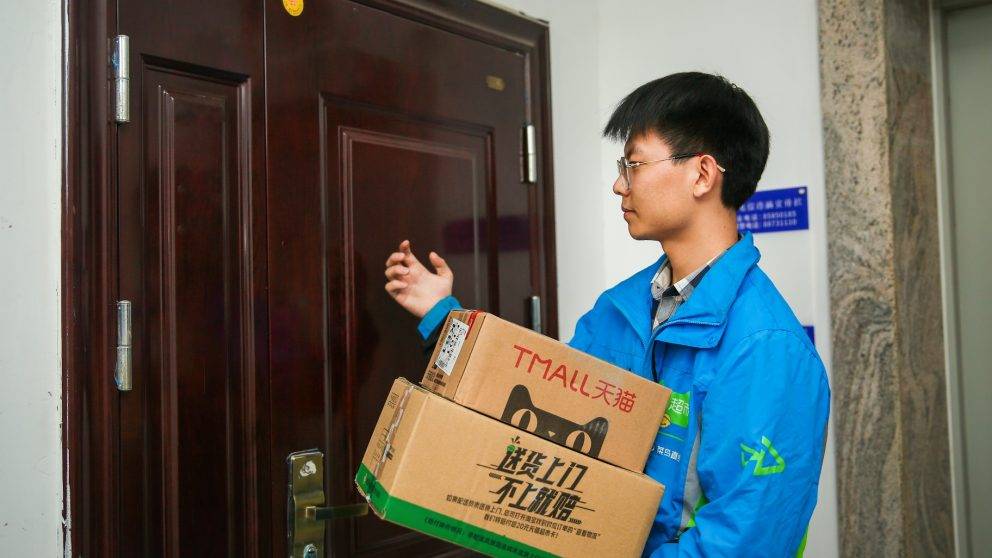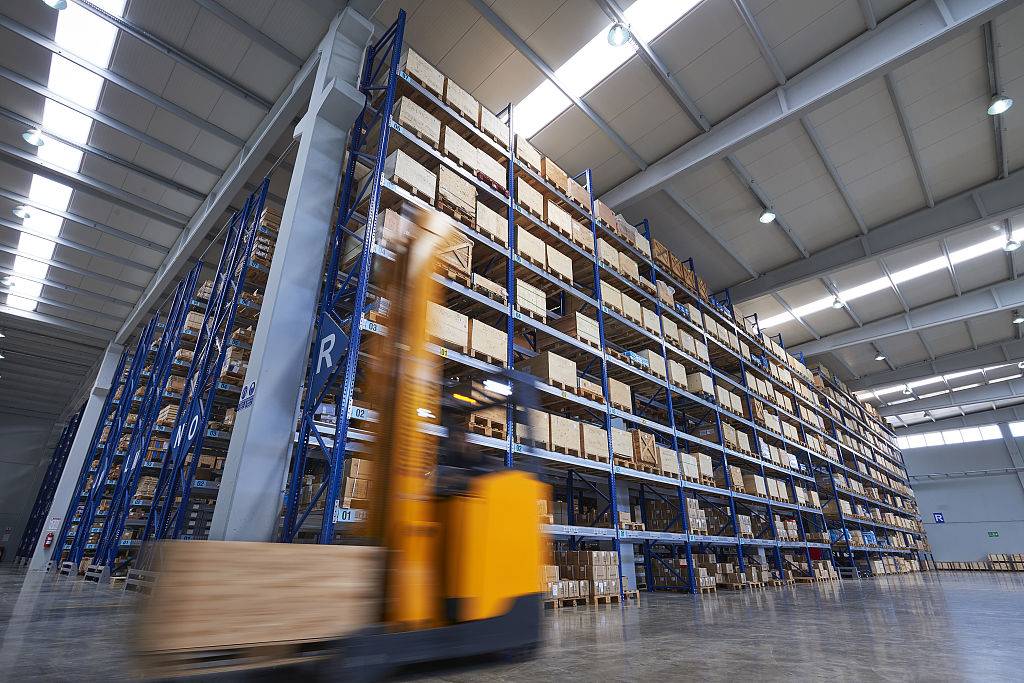
Listen and follow Alicast
Apple Podcasts| Spotify
E-commerce has steadily grown as a percentage of total retail sales in China. We spoke to consultants at Bain & Co to hear if the trend will continue into next year.
Worried about staying one step ahead of your competitors in China? Bain also counseled brands on how to keep their edge.
Tune into this, the second part of our wide-ranging discussion with James Yang, a partner at consultancy Bain, for advice on mastering the defining trends in the world’s second-largest retail market.
In this episode of Alicast, Yang offered his insights into overcoming supply chain snarl-ups as well as speeding up product development.
To hear Yang’s thoughts on building a customer loyalty program in China in a previous Alicast click here.
A portfolio of products is great, but resting [on] your laurels on a few big hero items isn’t enough
Below is a transcript of this Alicast, edited for clarity and brevity
Alison Tudor-Ackroyd: James, thank you for joining us on Alicast.
James Yang: Thanks Alison. Thanks for inviting me.
Alison Tudor-Ackroyd: Your report advises that a strategic imperative is for brands to sharpen differentiation to deepen customer loyalty. China’s a competitive marketplace, how should brands do that in your opinion?
James Yang: Sharpening the differentiation comes down to two things. Number one is making that value proposition crystal clear – who you want to target, and how you want to communicate with them throughout the year. The second thing is really about the fantastic products and services you stand behind. Those will shine through for your customers. Point number two is great products always sell.
For the first one point, I would love to say a little bit more. It’s about engaging your customer throughout the calendar year and not just thinking of the shopping festival in isolation. If you run this fantastic deal once a year, whether at a shopping festival or not, it [may] end up with customers stockpiling a product and they don’t engage with you the rest of the year.
They buy with you at the cheapest price point. It doesn’t help you throughout the rest of the year. It’s a little bit shooting yourself in the foot. However, it’s easier said than done because with the day-to-day realities of the business, you find yourself caught up. There’s pressure to deliver on sales and financial targets. It’s easy to imagine a scenario where people have to achieve [sales targets] in shopping festivals— so planning out that entire year calendar therefore becomes even more important.
It is about being very purposeful in what you want to achieve. This time is about reaching out to new customers and sticking with our most loyal ones, and we want to reward them and not just make every single window a big sales window. Getting everyone on the same page goes a long way to sharpening the differentiation.
Alison Tudor-Ackroyd: Can product development partnerships, like at Tmall Innovation Center, obviously I know the Alibaba ecosystem better than others, help brands gain an edge in China?
James Yang: Great products and services definitely need to shine through. If you don’t have that, it’s very hard to sustain yourself as a brand. In China, the elimination rate is extremely high for products. It is always the next hot trend or product is just coming around the corner and displacing the current one. It’s always coming. So as a brand, you have this great product, but how do you stay on top and be constantly relevant? That’s the big challenge. A portfolio of products is great, but resting on your laurels on a few big hero items isn’t enough.
Such innovations become a critical part of it. Traditionally, larger companies have dealt with this with classic R&D department with big budgets. Their mission is to innovate and come out with these products and customers that would give value. But the process is long, and sometimes it could take months, if not years, before something can come to market.
The Tmall Innovation Center is unique in how it’s shortened that process. But, also interesting, is how it’s improved the hit rate on these new products, which is even more important. No one has a crystal ball behind what consumers love, but as much as you can peer into it and improve and speed up the test and learn the cycle of it, that’s the key. And so, in testing and learning and being agile, the Tmall Innovation Center has done much to help many brands.
In testing and learning and being agile, the Tmall Innovation Center has done much to help many brands
Alison Tudor-Ackroyd: I have seen that. Zooming back out a moment, online is steadily growing as a percentage of total retail. Do you see that trend continuing and which sectors would you say are the laggards and which are the leaders?
James Yang: Online [in China] is probably, one of the, if not the highest in the world at the moment when you’re talking at scale e-commerce penetration and all signs still point towards it growing further. COVID has been impacting China as well and you saw e-commerce and O2O rates shoot up during this time. When you go back to this, it also comes down to what you define as online. The lines are getting more distorted and blurrier.
Now we’re talking about 30 minutes or 60 minutes [delivery]. In my language, I still consider those as part of the whole online. And that has exploded, and continues to explode, in the past year or two.
If you think about fresh vegetables, those have been more or less stubbornly offline. Consumers in China want to see the vegetable; they want to know what they’re buying, but COVID has accelerated that growth. That’s one big difference. It’s true that there’s a little dialling back or rebalancing to do in the sector, especially regarding multi-hour delivery. It’s just how harsh the economics are. Like the basket-size, you need someone to deliver to you within 30 minutes. The model needs to be tweaked, but there’s room to grow overall. Categories like electronics, health and beauty apparel, have always been leaders in the space. Those have also seen jumps and will steadily grow in the years to come.
Alison Tudor-Ackroyd: When you referenced fresh products, obviously in the Alibaba ecosystem, I was thinking of Freshippo, we’ve seen some interesting things from it this year, but I wanted to double-check with you. What have you heard about logistics challenges getting the product into China in time for 11.11 or other festivals this year? Have you heard of any ingenious ways that brands have overcome those problems? I’m sure you have avid listeners when you talk about this…
James Yang: Unfortunately, there’s no silver bullet on this. It’s no secret that global supply chains have had their fair amount of challenges this year, whether getting the end product into the market in China or just trying to assemble various components from all parts of the world. I’ve heard many stories about how tough that has been. More specifically, for 11.11 this year, everyone I’ve spoken to has just been disciplined on earlier and better planning. They have already done it months in advance, in the summer. Back then, everyone had already been planning out very detailed volumes, expectations and demands.
And that has been especially true for imported products but also domestically. So having backup plans even domestically has been quite important. You’ll see that people are distributing their stock domestically across different warehouses to ensure fluidity and agility so you can always spread out. You don’t want all your stock in one massive warehouse that might be stuck for unforeseen reasons.

Alison Tudor-Ackroyd: Very wise words, indeed. I am moving on to a topic that explodes when I look at my analytics: the metaverse. We’ve seen lots of innovation coming out of China. What excites you?
James Yang: The innovations that always excite me the most are the ones that drive deeper customer engagement. That’s first and foremost. So, this one is just that seamless customer experience between online and offline. That’s the big challenge that everyone’s trying to recreate. Offline, you get a tangible feeling of look, see and feel. That’s the real big thing. When you think about that and recreating that in the online space, A/R does come to mind. The virtual wardrobes [for] trying-on clothes, a nice watch, and planning out your home furniture. All those things are fantastic innovations to me. But even things that bring more tangibility with you and the product. Freshippo for a very long time has done QR code scanning with a fresh product so that you know where the product is coming from. Everything they do is just making sure you feel more comfortable – like you are there with the product and know more about it. Those things are great innovations.
The second one that excites me quite a lot is not visible to the consumer, but it’s what makes everything happen. It’s all the magic behind the scenes, especially when you talk about O2O, which is the supply chain and the efficiency that comes with it. It’s less buzzworthy, but it’s incredible in the number of packages we can move. 11.11, the largest shopping festival used to have painful bottlenecks. Even up to a few years ago, people were not receiving packages because they took a while to deliver. But just solving that with smart warehouses, algorithms, and supply routes and optimizing that pick and pack efficiencies all across the end-to-end value chain has been amazing.
Alison Tudor-Ackroyd: Thank you so much James for your insights. Always a pleasure to chat with you. Thank you so much.
James Yang: Thanks for having me.
Listen and follow Alicast
Apple Podcasts| Spotify
“Alicast” is a production of Alizila, the corporate newsroom of Alibaba. It’s produced by Yashan Zhao and hosted by Alison Tudor-Ackroyd. If you’re in a podcast app already, please follow “Alicast”. If you’re listening on Alizila’s website and want each new episode of “Alicast” delivered to you as they’re published, download any podcast app, then search for “Alicast” to follow the show. Thank you for listening.




